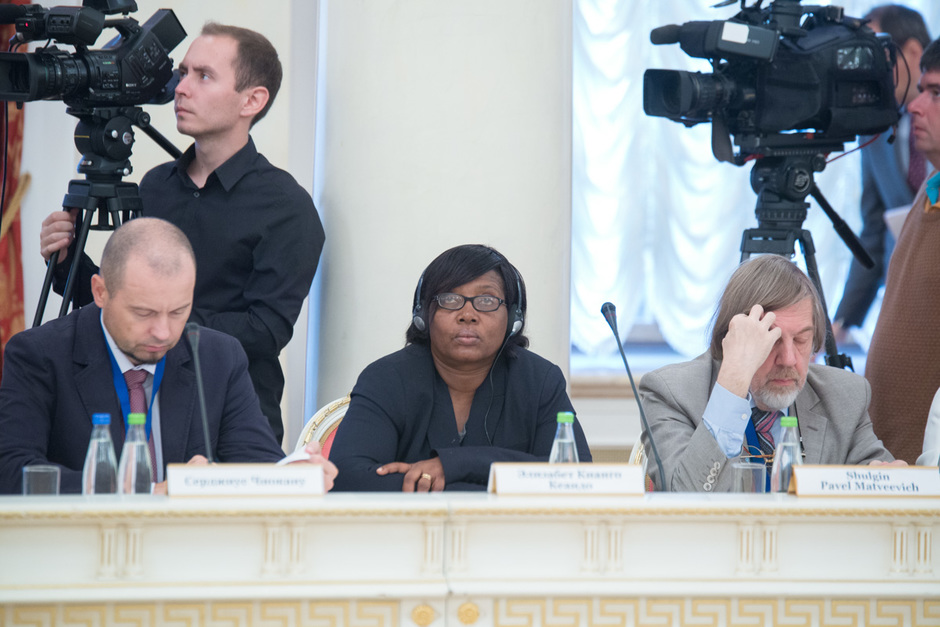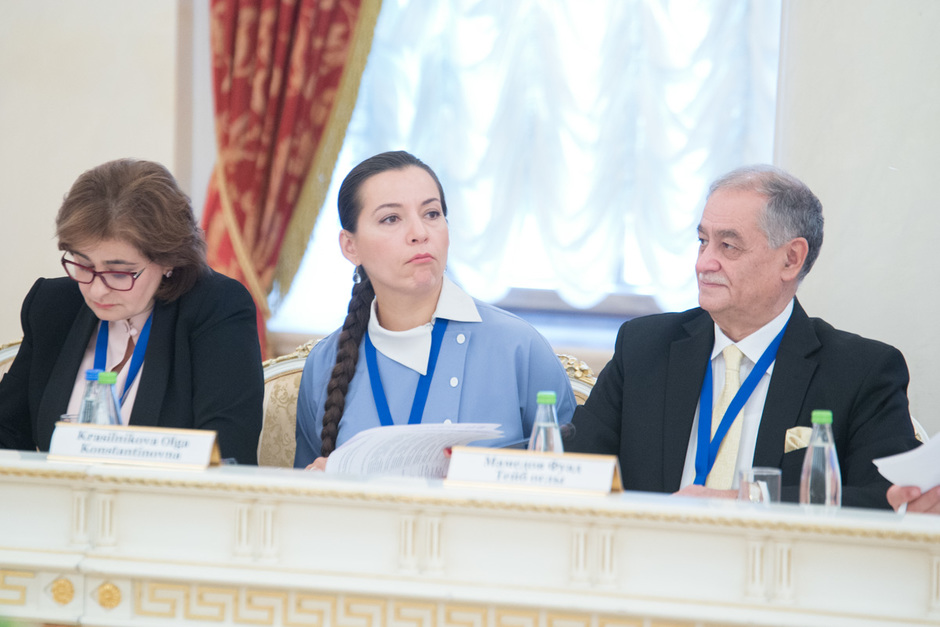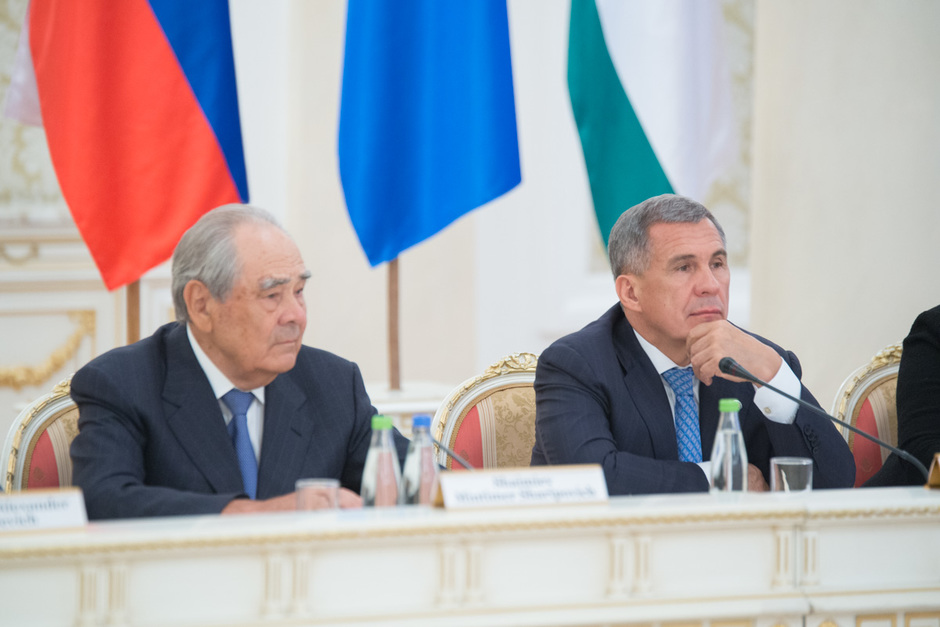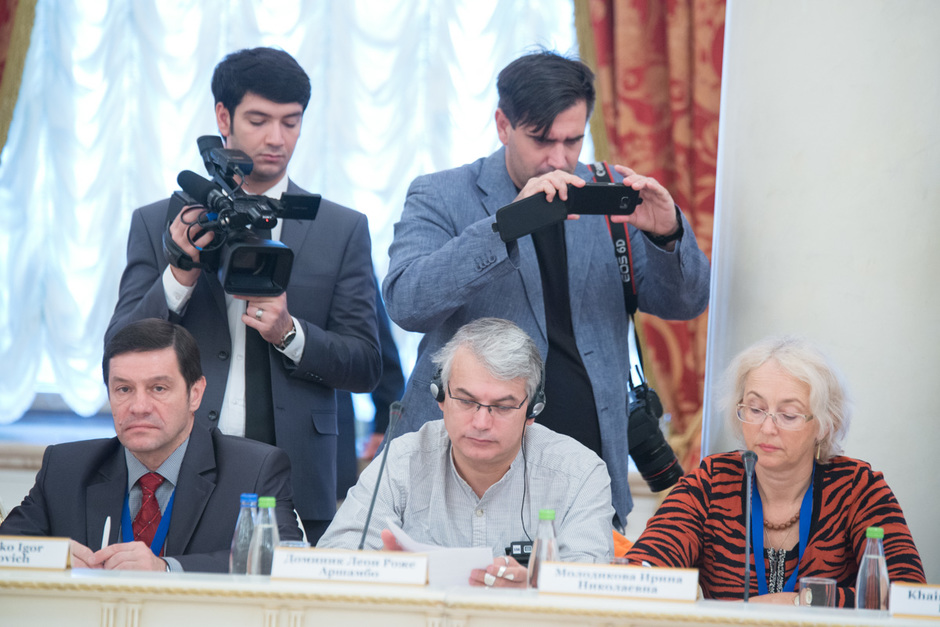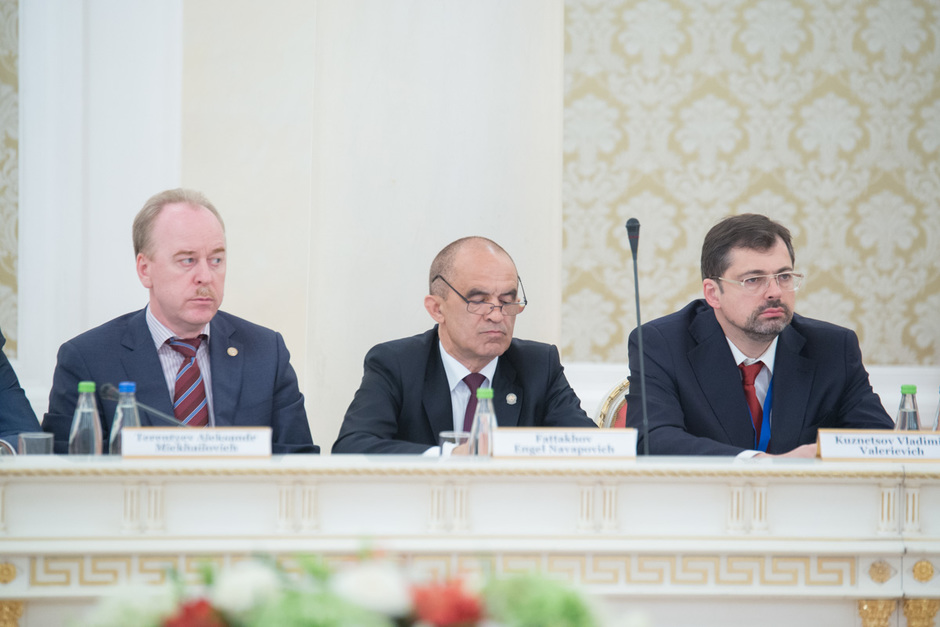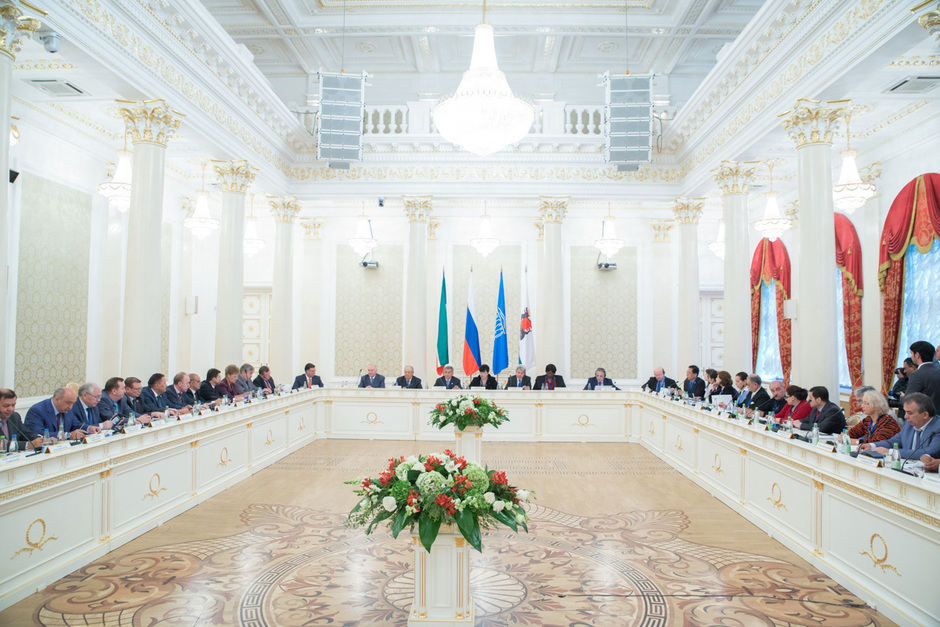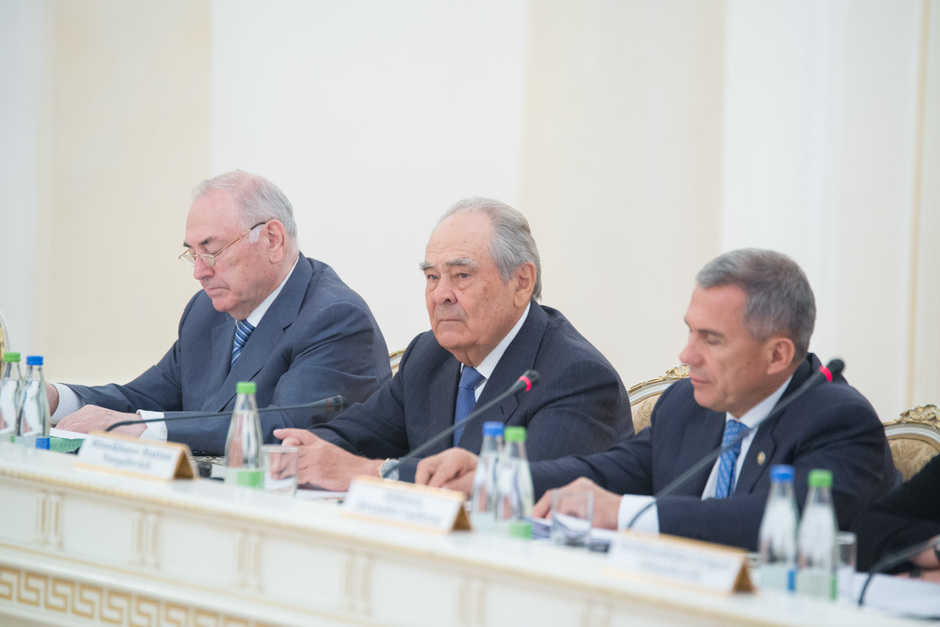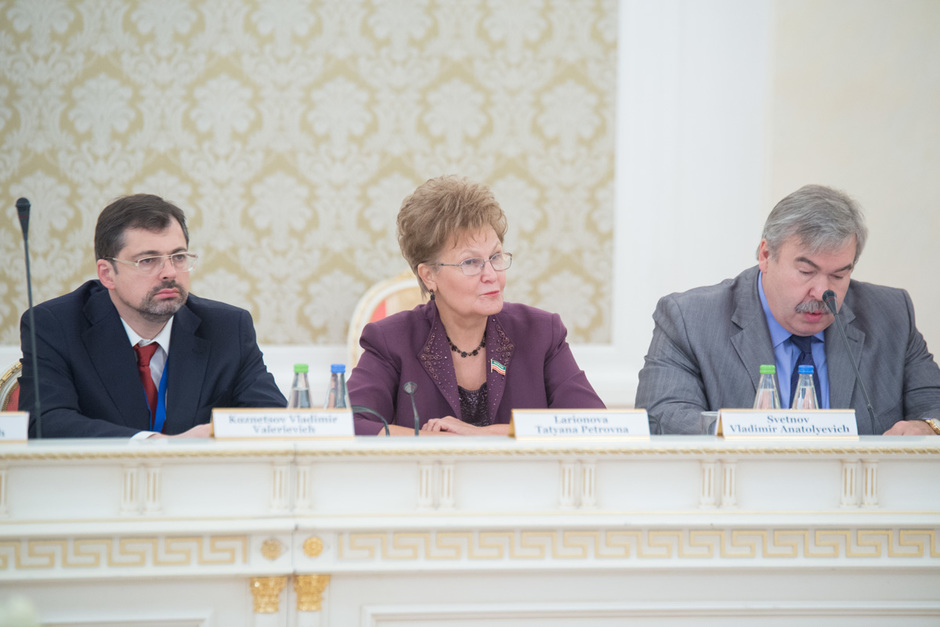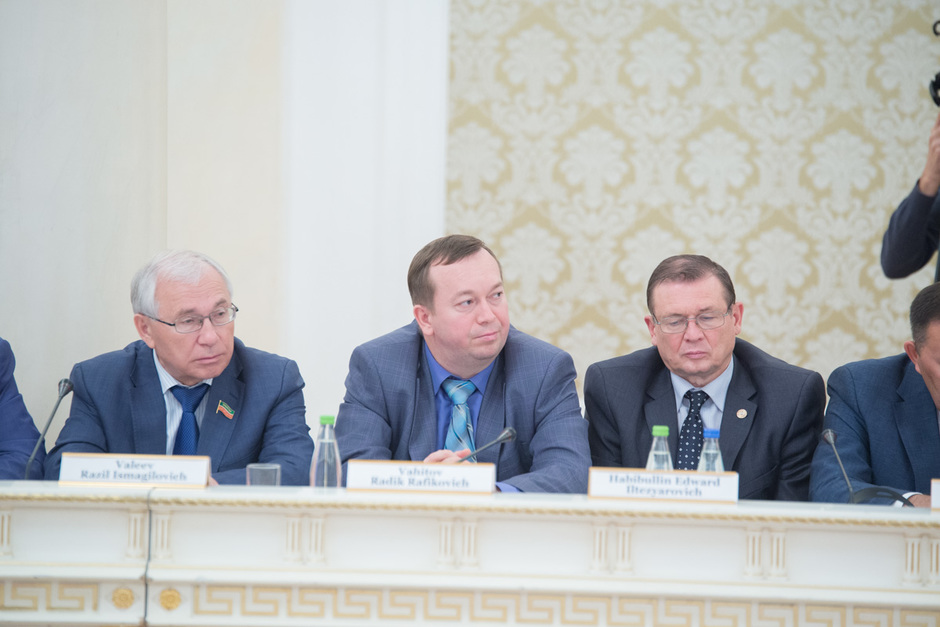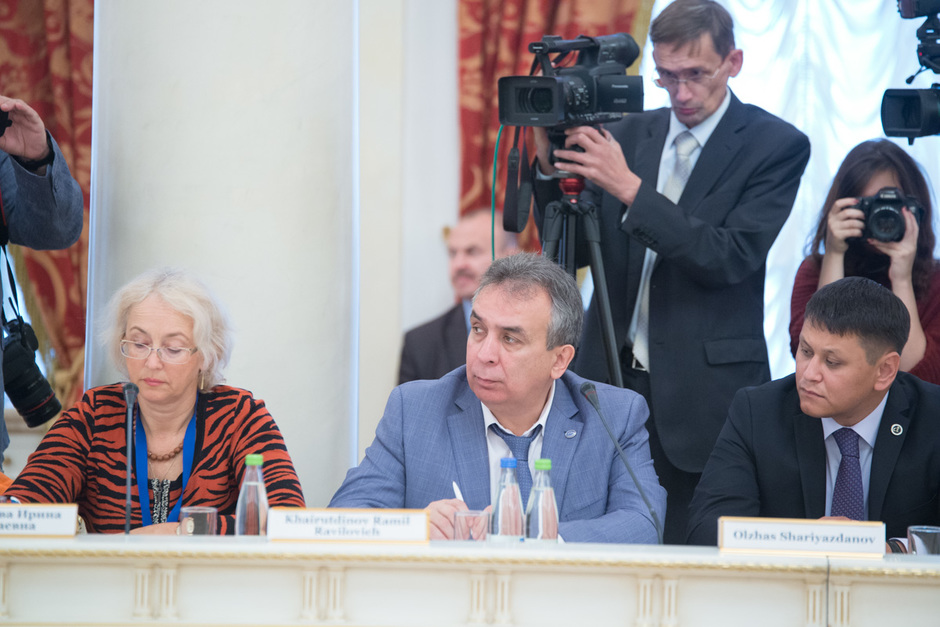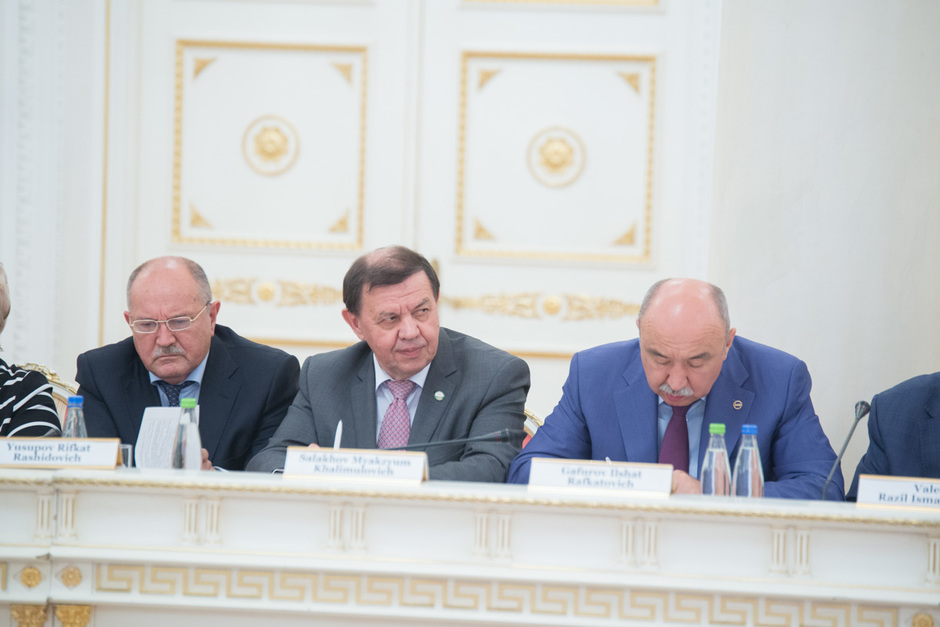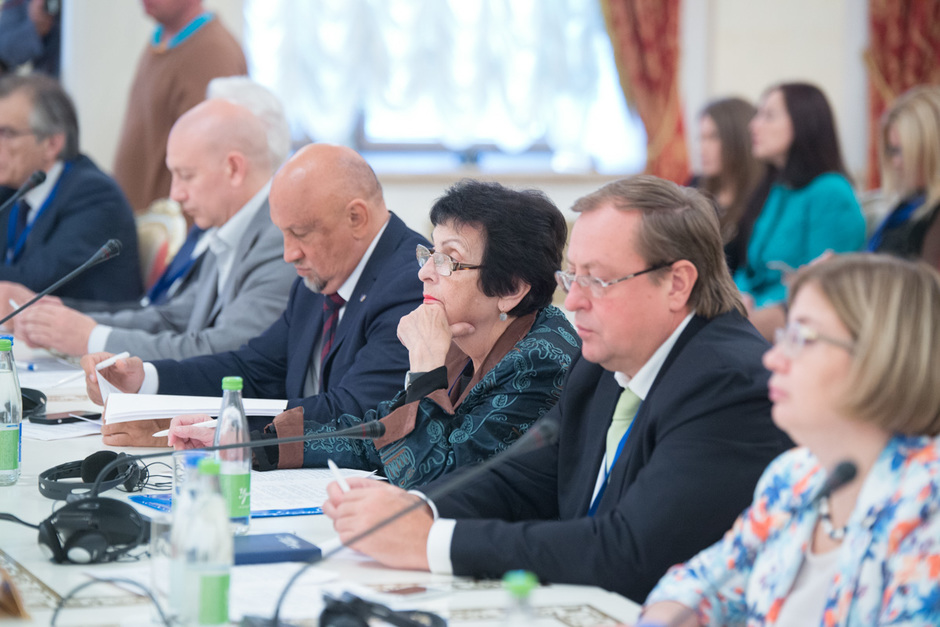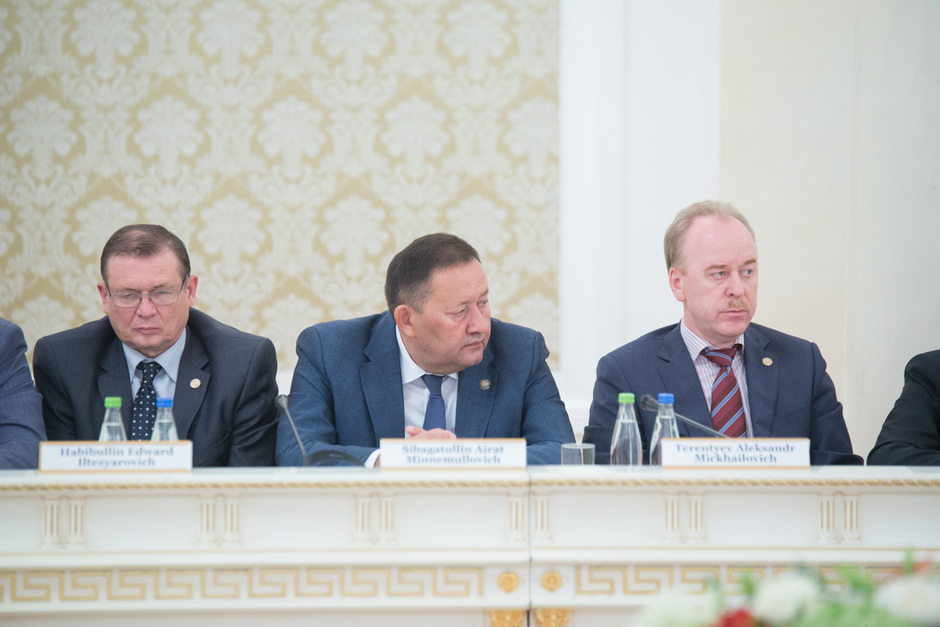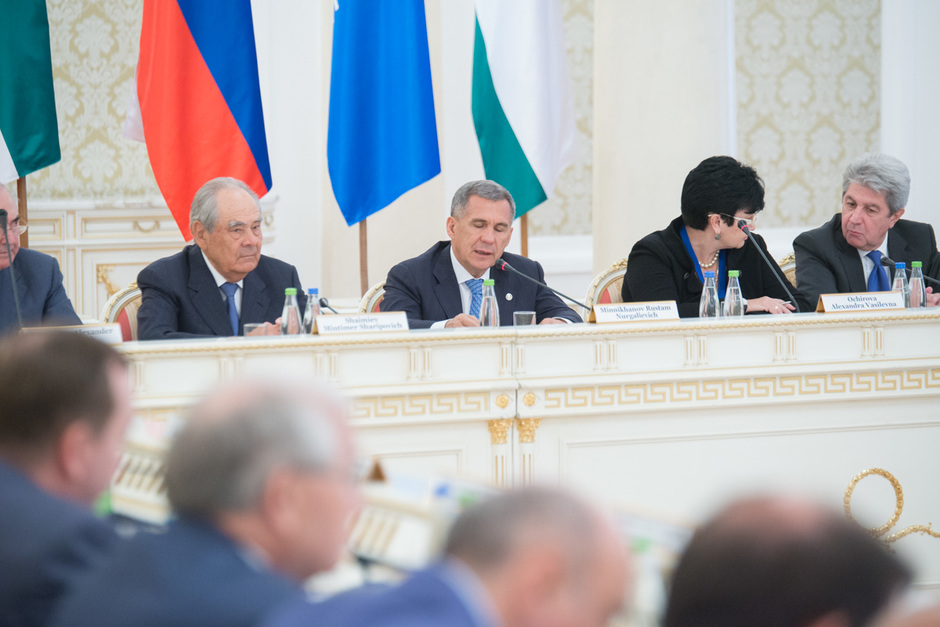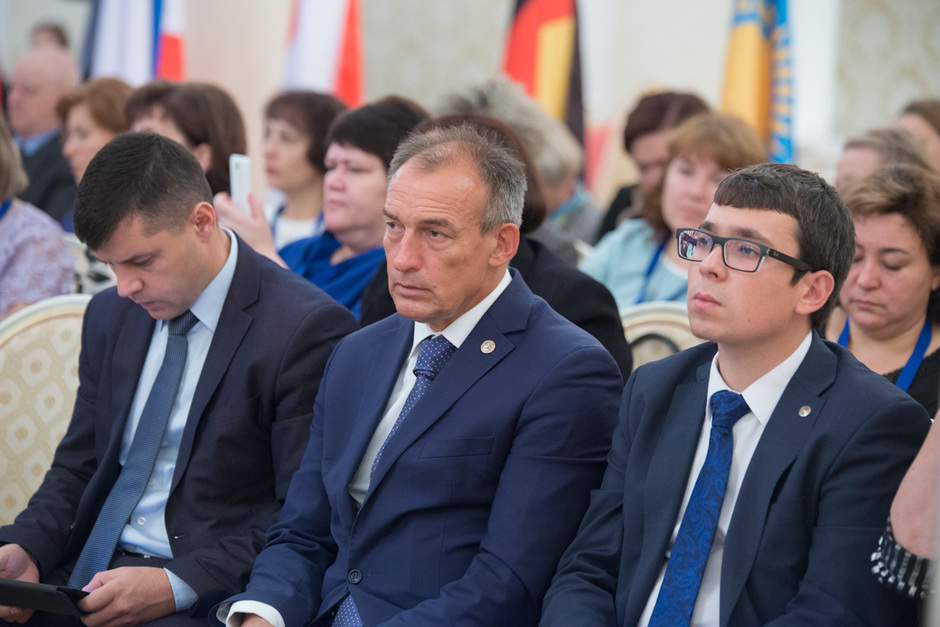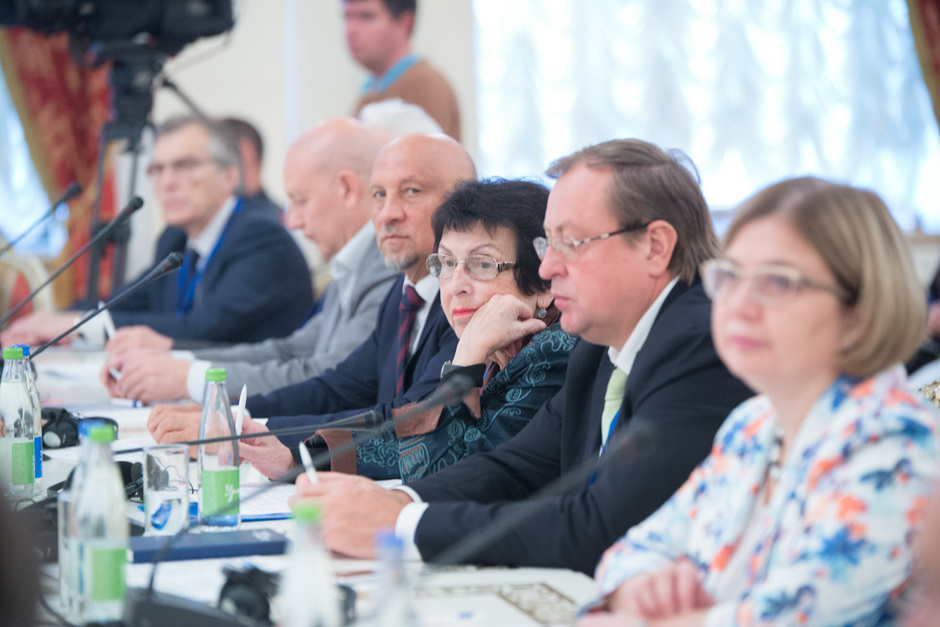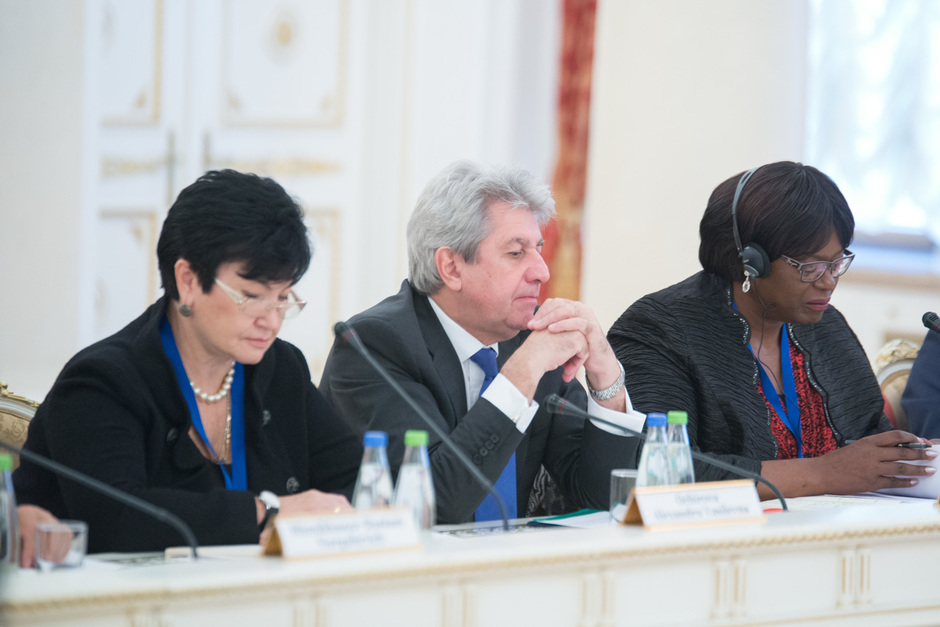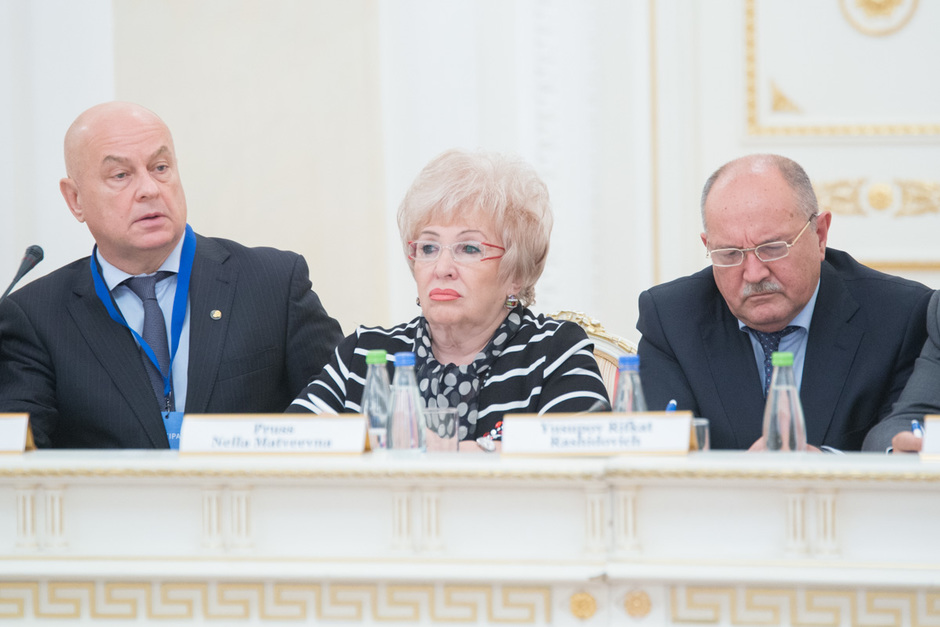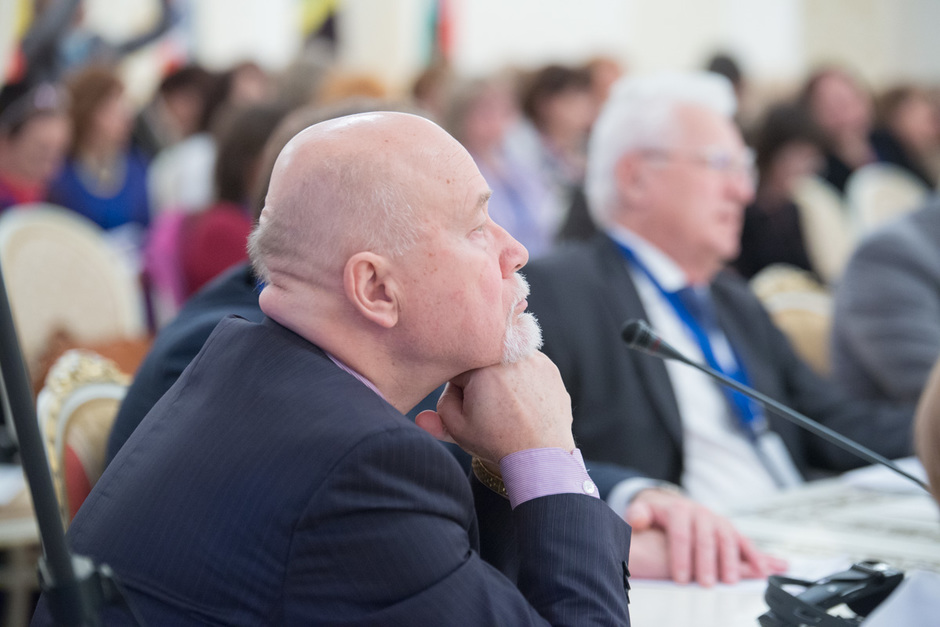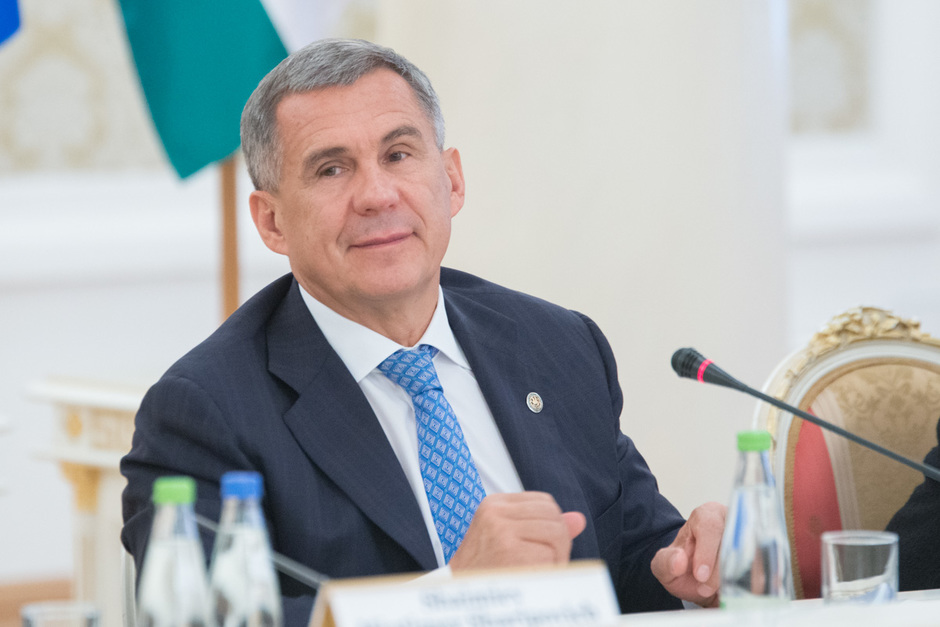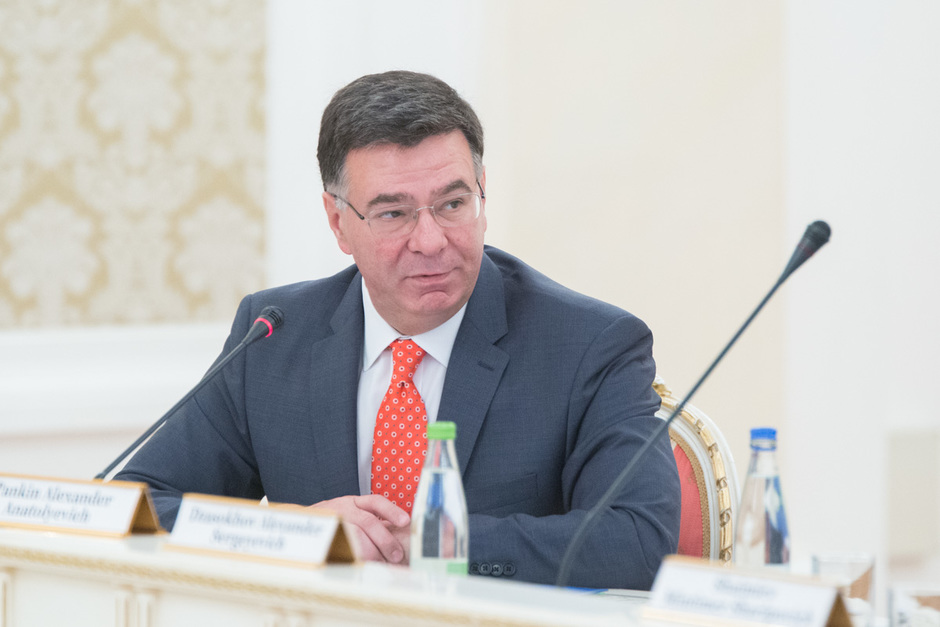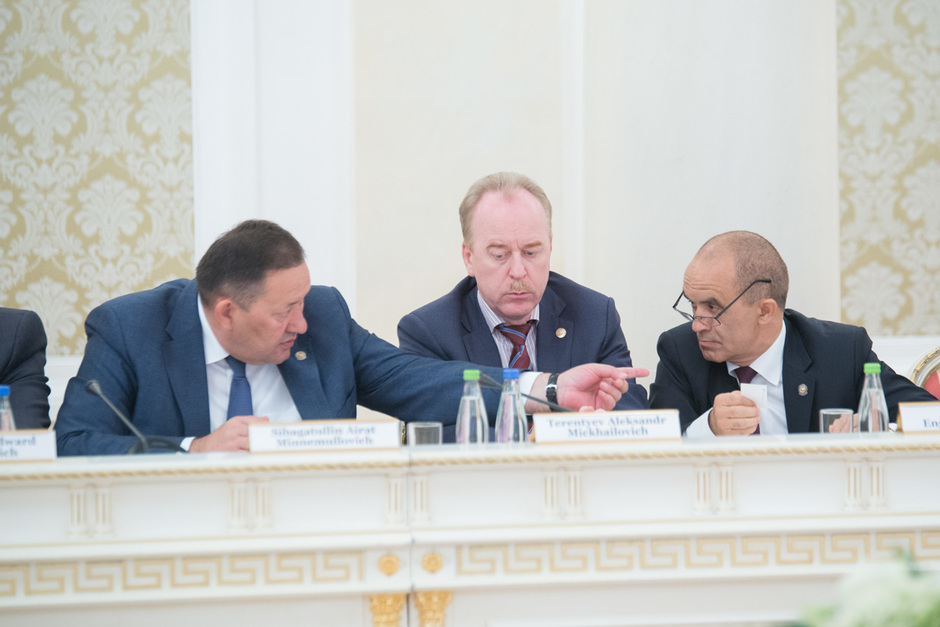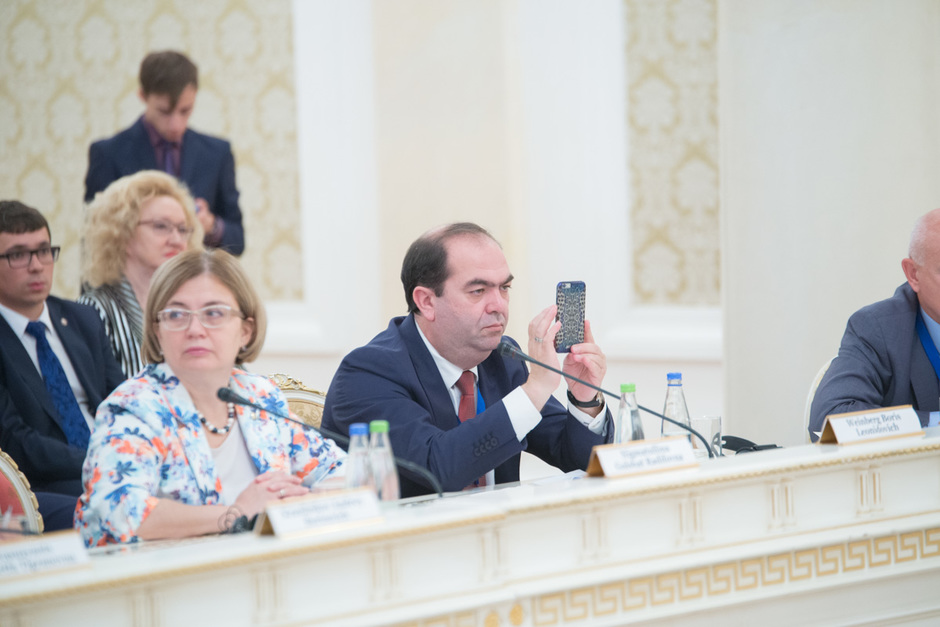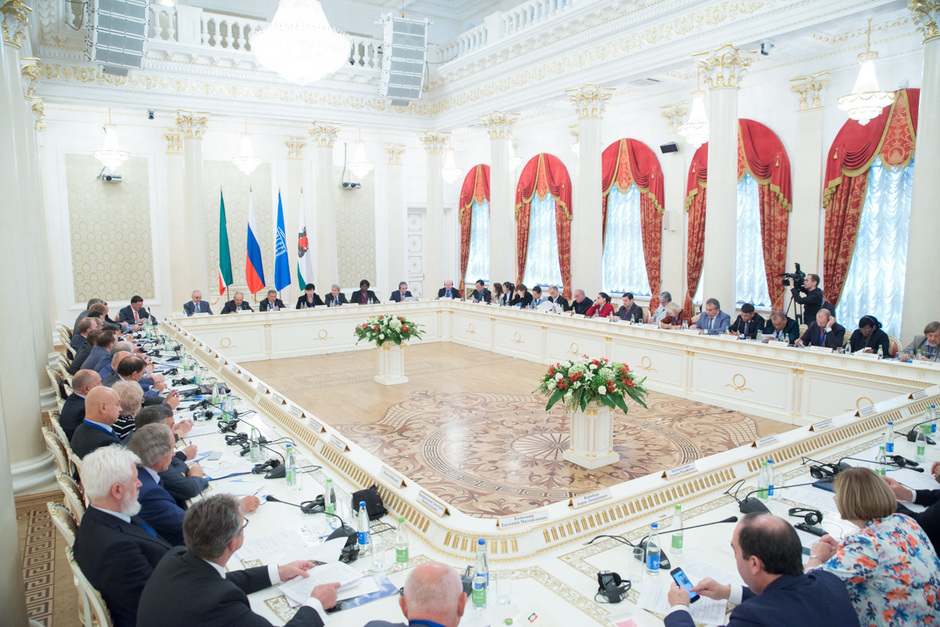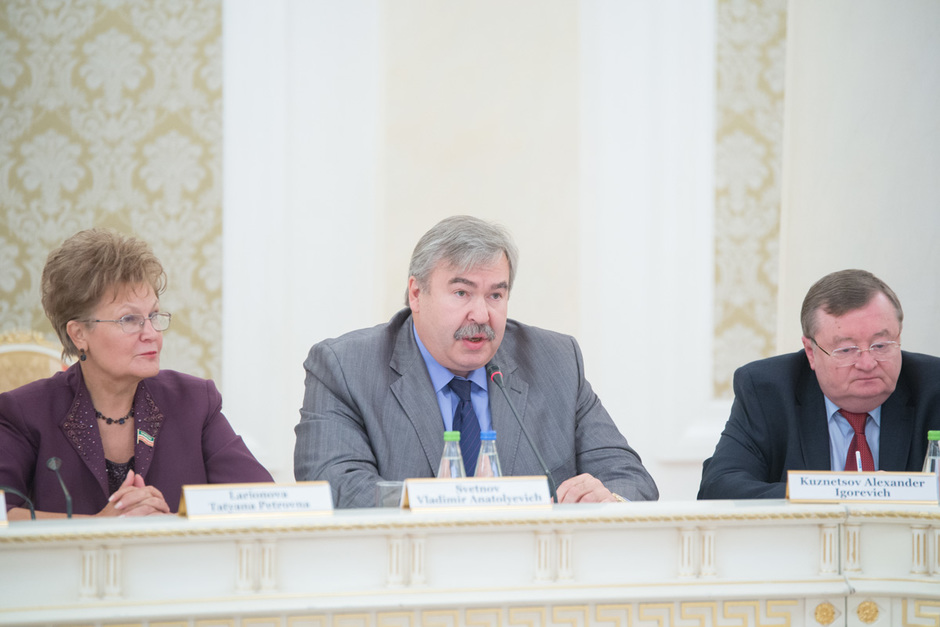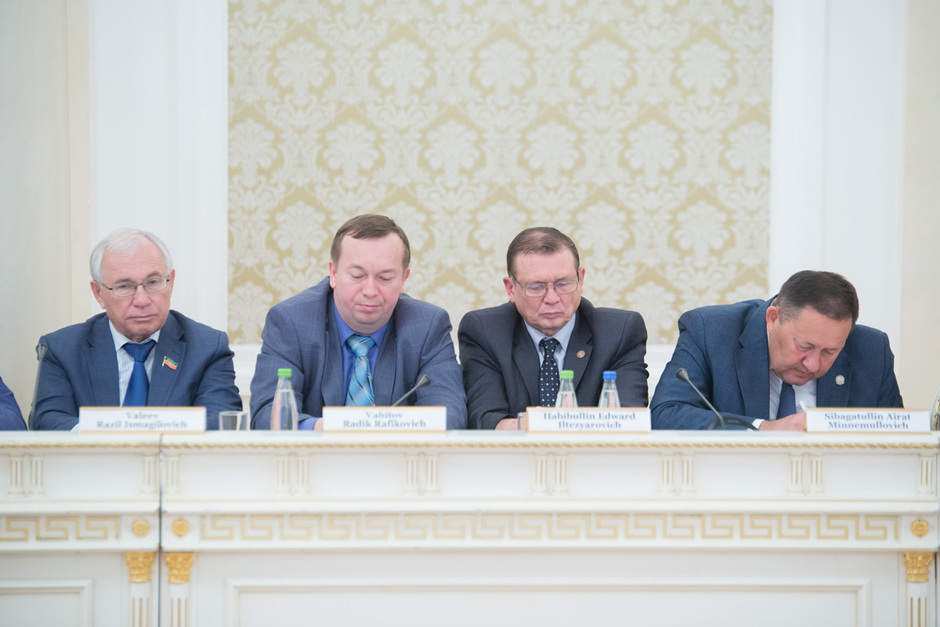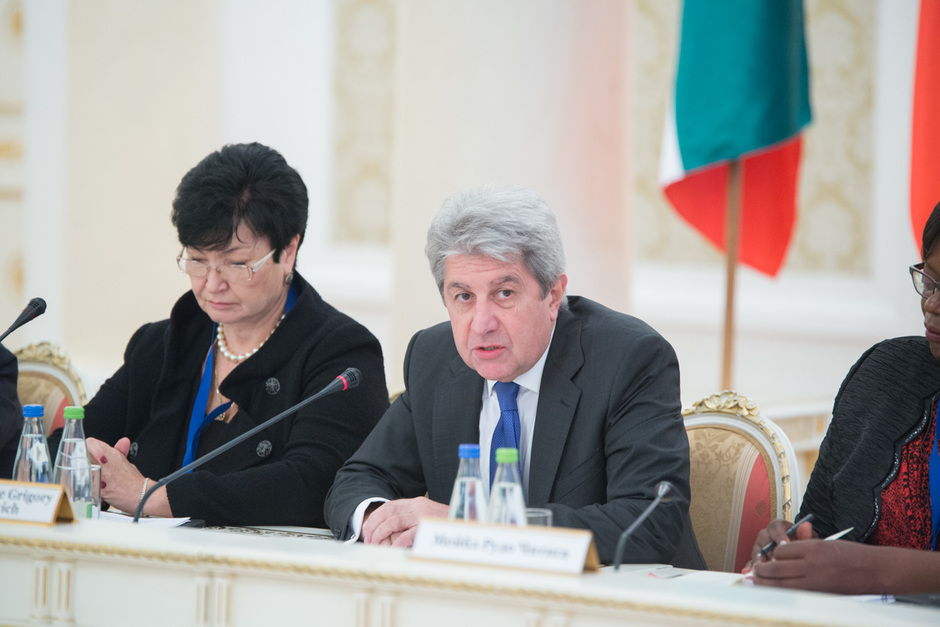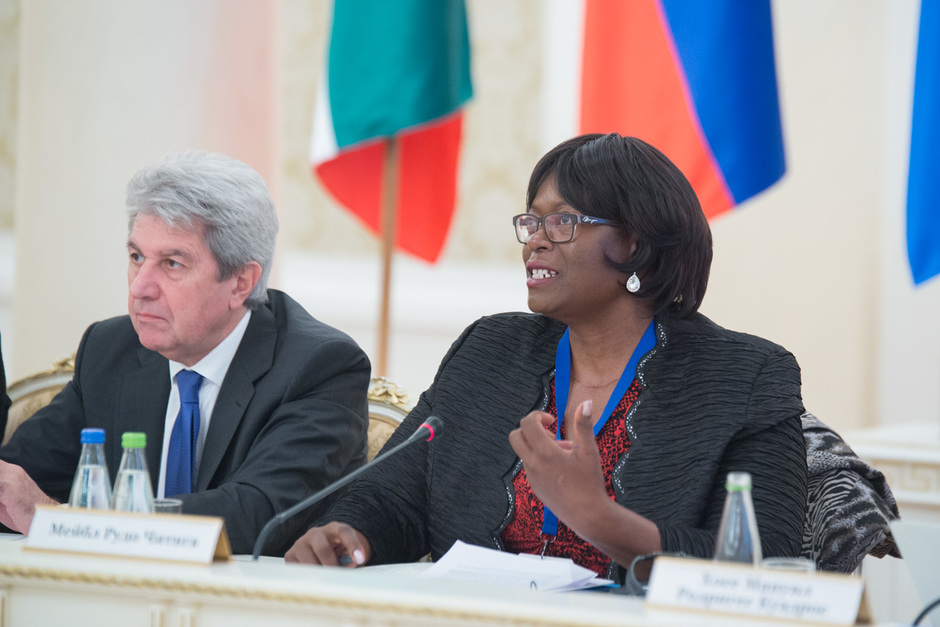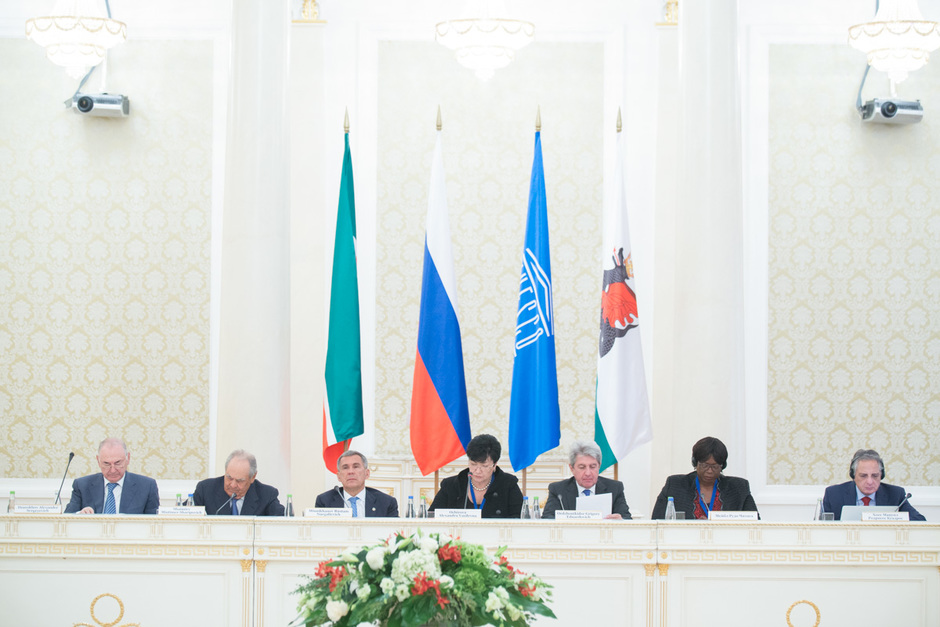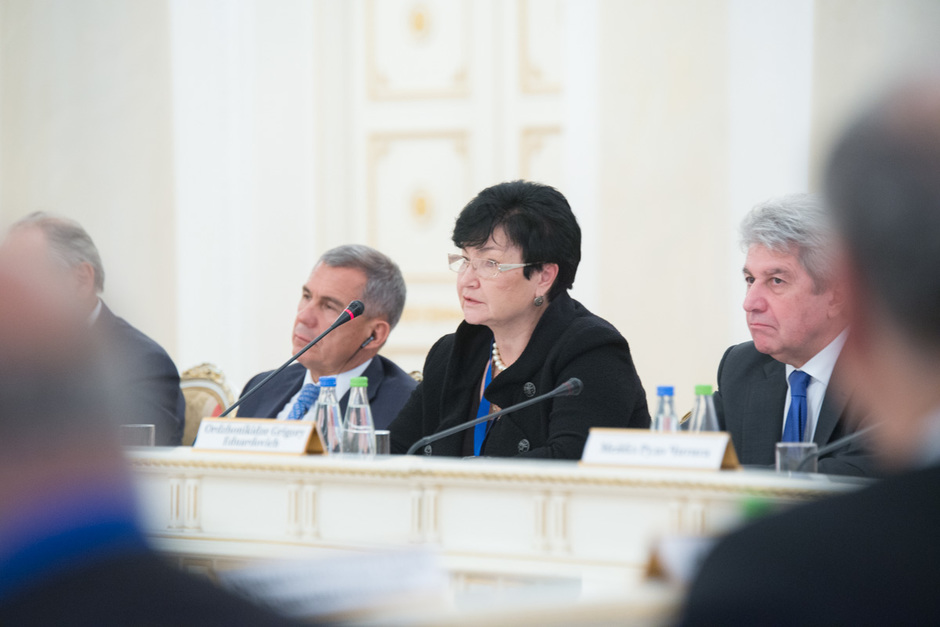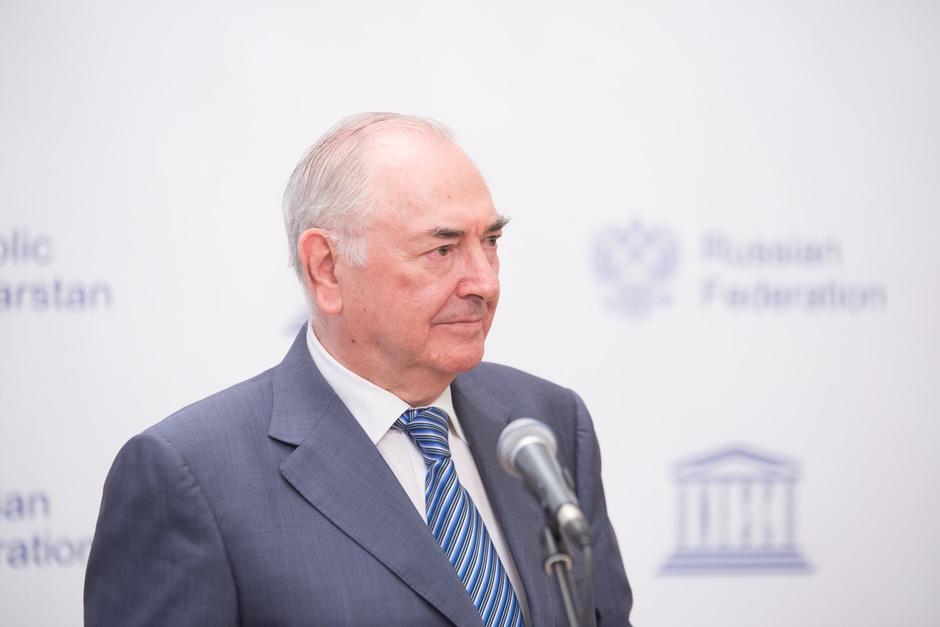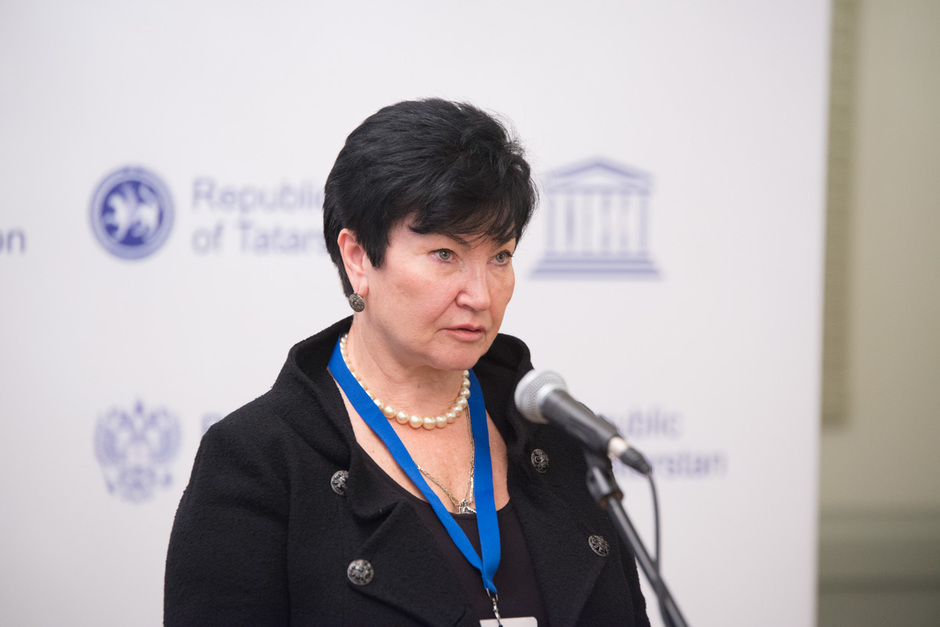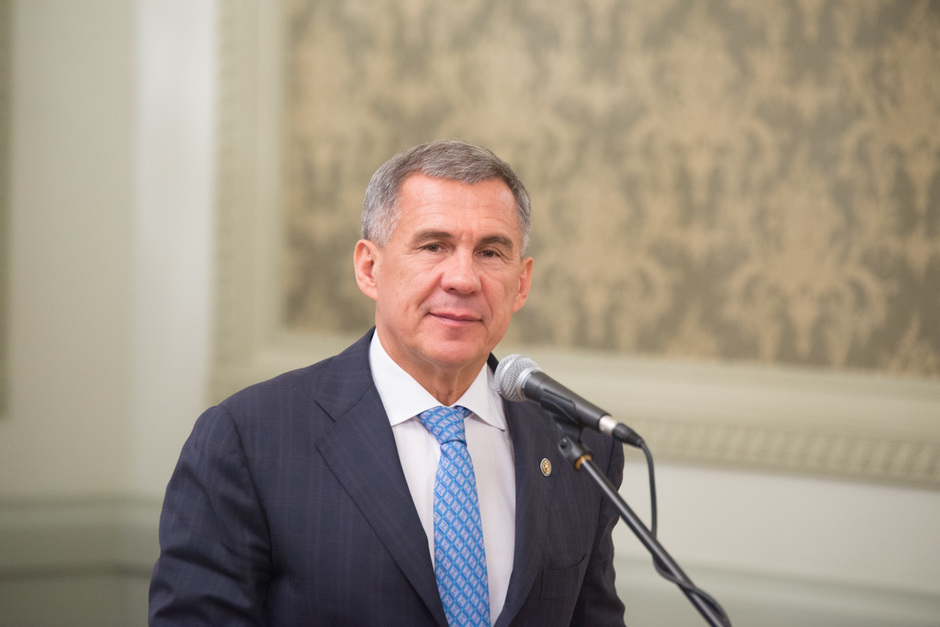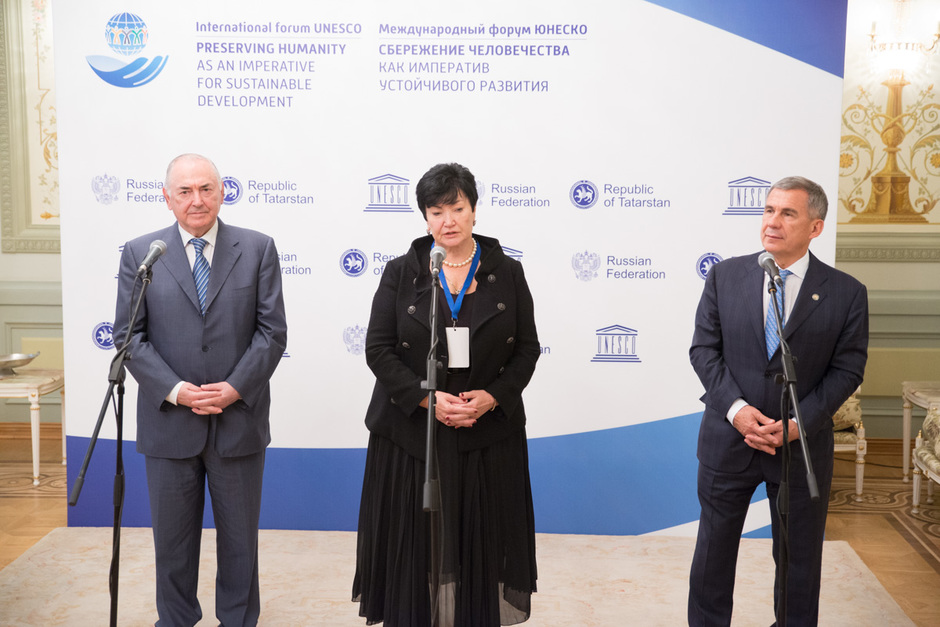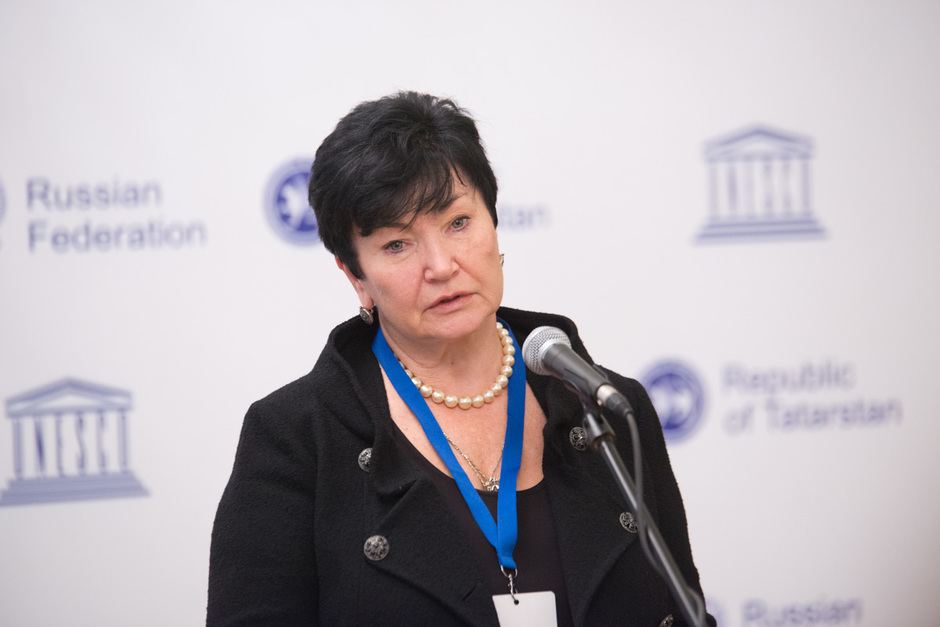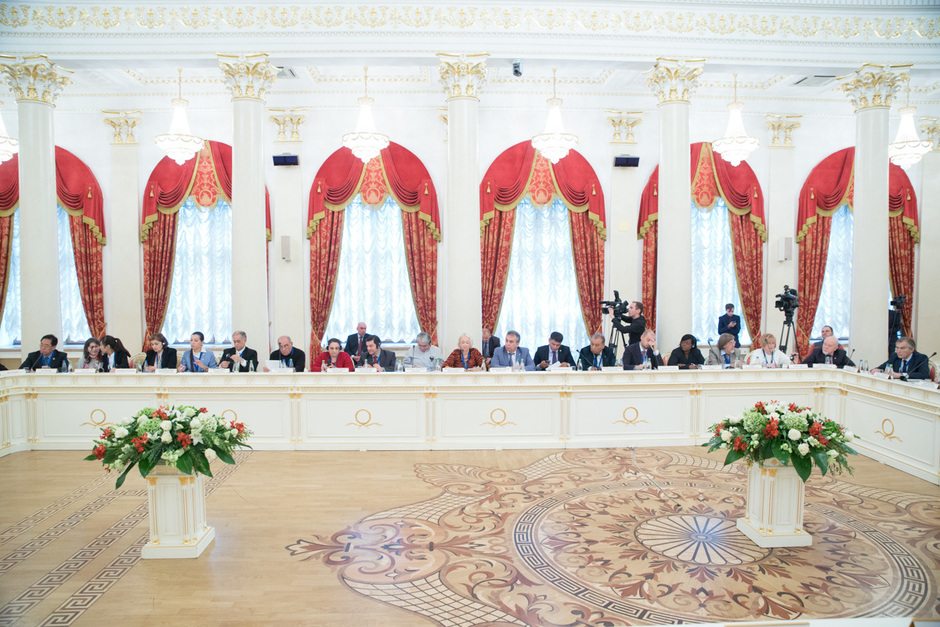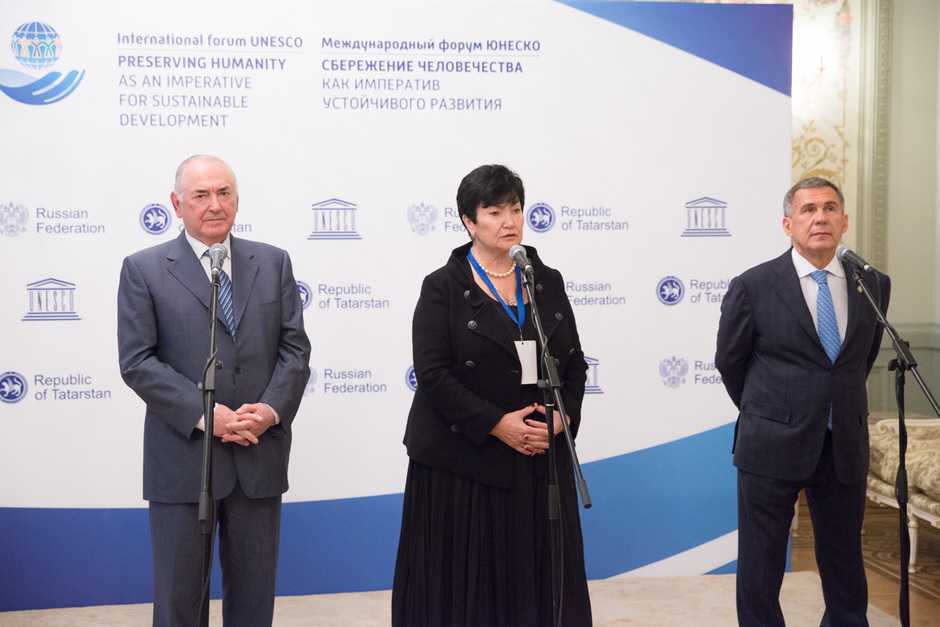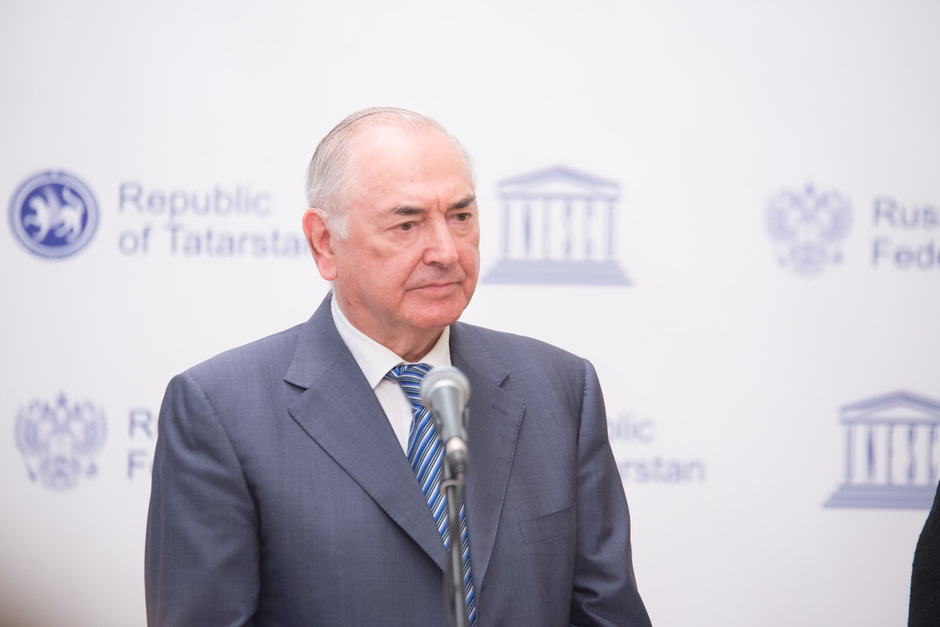UNESCO Forum in Kazan: unarrived Lavrov and thankful Ambassador of Zimbabwe
The problem of preservation of water resources in Africa, the use of religion for political purposes and the absence of the Foreign Minister of Russia Sergey Lavrov were discussed on 15 September within the scope of the UNESCO Forum in Kazan. The correspondent of Reanoe Vremya became a witness of how Tatarstan publicly supported the candidacy of UNESCO Director General Irina Bokova for the post of Chairperson of the United Nations. Bokova has repeatedly supported Moscow and her appointment can help Russia to settle some conflicts on the international arena.
Lavrov did not come
'Dobroye utro! Khaerle irte! Good morning!' greeted the audience the President of Tatarstan Rustam Minnikhanov. The first discussion of the forum was not the platform for scholarly debates but rather the official opening of the working day.
'Taking into account the composition of the population, our priority is to work for the preservation of interethnic and interreligious consent: the block of programs has been adopted, the infrastructure to implement the national policy has been formed, the situation is being monitored. We also pay attention to the support of civil society institutions,' said Minnikhanov. Besides, the President reminded that today the UNESCO List already includes the Kazan Kremlin and the historic and architectural complex Bolgar, the Assumption Cathedral in Sviyazhsk claims to receive the title of the UNESCO heritage.'
One of the main news was that based on the results of the UNESCO forum it was adopted the Kazan Declaration. As it was noted already in the second debate, the previous Kazan Declaration was adopted in 2006 and was called 'for peace'.
As it turned out, the Minister of Foreign Affairs of Russia Sergey Lavrov was invited to the forum. But the director of the Department of International Organizations of the Ministry of Roreign Affairs of Russia Aleksander Pankin said that the Minister was being far from Kazan. At the same time, Pankin was sure that from the news the attendees were aware of where Lavrov was. There was no detailed information in the media on where Lavrov was on 15 September, but the next day he was to work in Bishkek at the Council of Foreign Ministers of the countries-participants of the CIS.
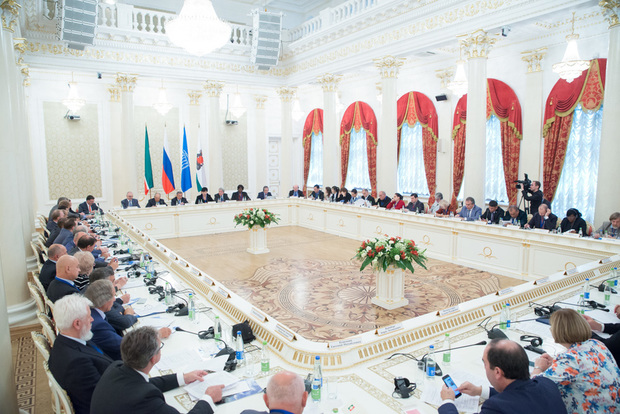
Perhaps, the most eloquent speech was of the Zimbabwe Ambassador to France Ms Rudo Chitiga.
'In all UNESCO programmes Africa is a priority. Of course, sometimes resources are not enough to ensure this priority was implemented in full extent. I must say that probably the most important contribution of UNESCO is the preservation of the rivers of Africa, the preservation of water resources. In general, we have an oral culture, we don't have a lot written things about who we are, what we have achieved. And we must adapt to those things which do not correspond to our national traditions,' she reflected.
Director General of UNESCO – as the head of UN
The Director General of UN Irina Bokova, who is a candidate to the post of the UN chairperson, also could not come to Kazan. However, at the press conference Rustam Minnikhanov told the journalists that he supports her candidacy despite the fact that he cannot affect the results.
'Everything that has changed in recent years – it is the huge work of our specialists of UNESCO. Now we know Ms Bokova very well. She is a very qualified specialist who is able to work in a large international organization. We treat this news very positively,' said Minnikhanov.
Ms Bokova quite closely cooperates with Moscow, for which she has repeatedly been criticized. For example, she was first who stated about the readiness to assist, when the Russian VKS (the Russian Aerospace Forces – editors' note) helped Bashar al-Assad to free Palmyra. In particular, Irina Bokova financed and sent the experts to the restoration of the ancient city. Russian President Vladimir Putin called and told her personally about the liberation of Palmyra. It was even said that he contributed to the nomination of Bikova from Bulgaria — supposedly that way he hoped for her help in settling tensions around Kiev. But these talks remained at the level of rumors.
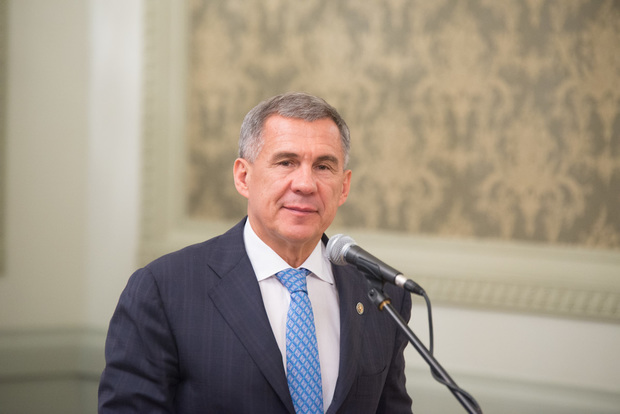
'Up to 60% of ISIS fighters have a very rough idea about the basics of Islamic faith'
By the way, the second discussion was devoted to the traditional values mentioned by the representative of Zimbabwe. According to Rafael Valeyev, they play a huge role not only in Russia but in the whole Eurasia. As a modern example of cultural gap, he cited the situation in Ukraine, where the elite follows the European values but the majority of the population chooses traditional values.
Speaking about the Russian state, the scientist noted that it was created by the efforts of the Russian people but with the constant participation of other nationalities. As it turned out, the Assumption Cathedral in Sviyazhsk, which claims to be included in the World List of UNESCO, is an example of the formation of the multinational state at the beginning of the XVI century. Despite the fact that the object has been always associated with Orthodox values, it is on the territory populated mostly by Turkic-Tatar and Finno-Ugric peoples. Interestingly, the Finno-Ugrians adopted Christian values but the Turkic peoples continued to follow the traditions of Islam.
Given the fact that the whole world is discussing a new threat in the face of ISIS (banned in Russia), the scientist stopped on this topic. Valeyev stressed that all world religions preach the same ideas and call for tolerance. As an example, he cited the appeal of the prophet Muhammad to the Muslims, in which he calls upon to ensure the safety of Christians and to care about their freedom.
'According to the data of special services, up to 60% of ISIS fighters have a very rough idea about the basics of Islamic faith,' said Valeyev.
